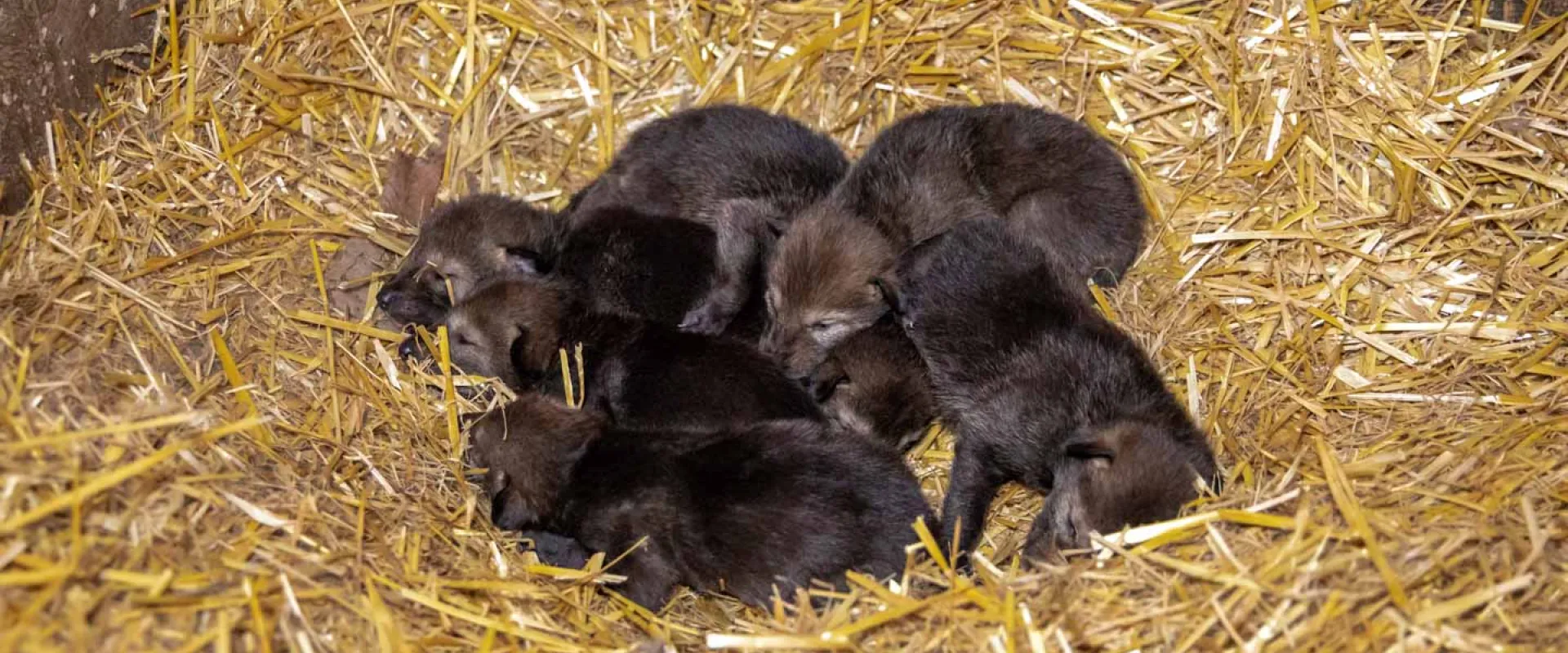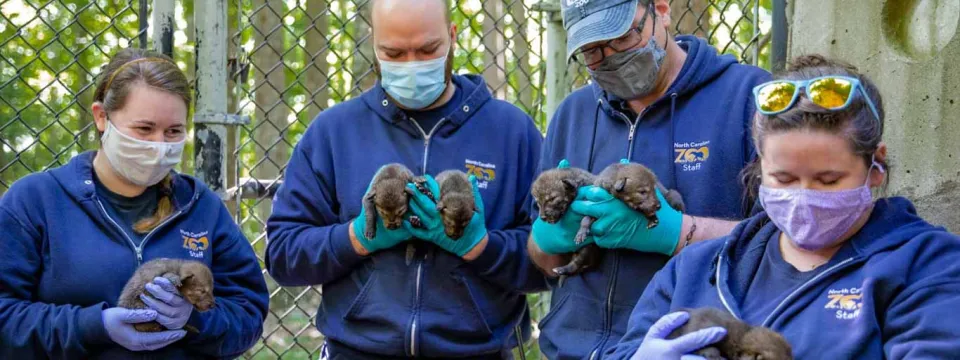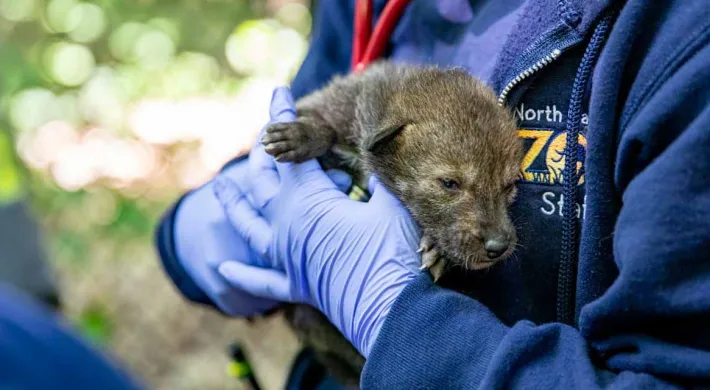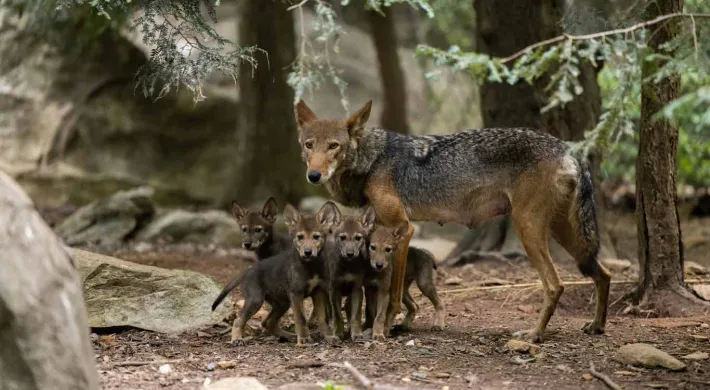North Carolina Zoo Announces Red Wolf Pup Names Chosen by the Public
Asheboro, N.C. – June 30, 2021 - The North Carolina Zoo is excited to announce the names of the six red wolf pups (four females, two males) born on the guest view habitat to first-time parents Flint (male) and Sassy.
The public was invited to vote in an online poll from a list of names provided by the Zoo’s red wolf keepers. The names are based on rivers in the Southeastern U.S. where critically endangered red wolves used to range. The naming poll had over 6,500 responses.
The chosen names are Eno, Harper, Pearl, Warrior, Fisher, Catawba.
The names to choose from were Catawba, Edisto, Haw, Harper, Warrior, Eno, Fisher, Pearl, Waccamaw, and Swannanoa.
The pups were born as part of the Zoo’s red wolf breeding program. There were three litters totaling 12 pups born during three days from April 28 to April 30 (the other two litters pups’ names will be announced soon). This brings the number of red wolves currently in the Zoo's breeding program to 35, making it the second-largest pack in the U.S. after Point Defiance Zoo and Aquarium in Tacoma, Washington.
Only 15-20 red wolves remain in the wild, and they are all in eastern North Carolina. Red wolves are considered the most endangered canid in the world.
Once common throughout the southeastern United States, the wolves were driven to near extinction during the late 1960s, but the U.S. Fish and Wildlife Service began an aggressive conservation effort – the American Red Wolf Recovery Program – that led to new ways to track and protect the species. Those efforts led to increasing numbers of wild red wolves in eastern North Carolina, but changes in how the recovery program was managed have resulted in the wild population again plummeting in recent years.
The Zoo has been part of the American Red Wolf Recovery Program since 1994 and led the successful efforts to have the American red wolf become part of the Association of Zoo and Aquariums SAFE (Saving Species From Extinction) program.
AZA SAFE Species programs aim to protect endangered species around the world. For more information, visit https://www.aza.org/aza-safe.
To learn more about the North Carolina Zoo and our red wolf program, please visit www.nczoo.org
About the North Carolina Zoo
At the North Carolina Zoo, we celebrate nature. As the world’s largest natural habitat Zoo, we inspire a lifelong curiosity about animals for the hundreds of thousands of people who visit our Zoo each year. Our dedicated team of experts provides exceptional, compassionate care for the more than 1,800 animals and 52,000 plants that call our Park home. We also lead efforts locally and globally to protect wildlife and wild places because we believe nature’s diversity is critical for our collective future. The North Carolina Zoo invites all of our guests to witness the majesty of the wild in the heart of North Carolina and welcomes everyone to join in our mission to protect nature’s diversity. Visit NCZoo.org to begin your life-changing journey.
About the N.C. Department of Natural and Cultural Resources
The N.C. Department of Natural and Cultural Resources (NCDNCR) is the state agency with a vision to be the leader in using the state’s natural and cultural resources to build the social, cultural, educational and economic future of North Carolina. NCDNCR’s mission is to improve the quality of life in our state by creating opportunities to experience excellence in the arts, history, libraries and nature in North Carolina by stimulating learning, inspiring creativity, preserving the state’s history, conserving the state’s natural heritage, encouraging recreation and cultural tourism, and promoting economic development.
NCDNCR includes 27 historic sites, seven history museums, two art museums, two science museums, three aquariums and Jennette’s Pier, 39 state parks and recreation areas, the North Carolina Zoo, the nation's first state-supported Symphony Orchestra, the State Library, the State Archives, the N.C. Arts Council, State Preservation Office and the Office of State Archaeology, along with the Division of Land and Water Stewardship. For more information, please call 919- 807-7300 or visit www.ncdcr.gov.



